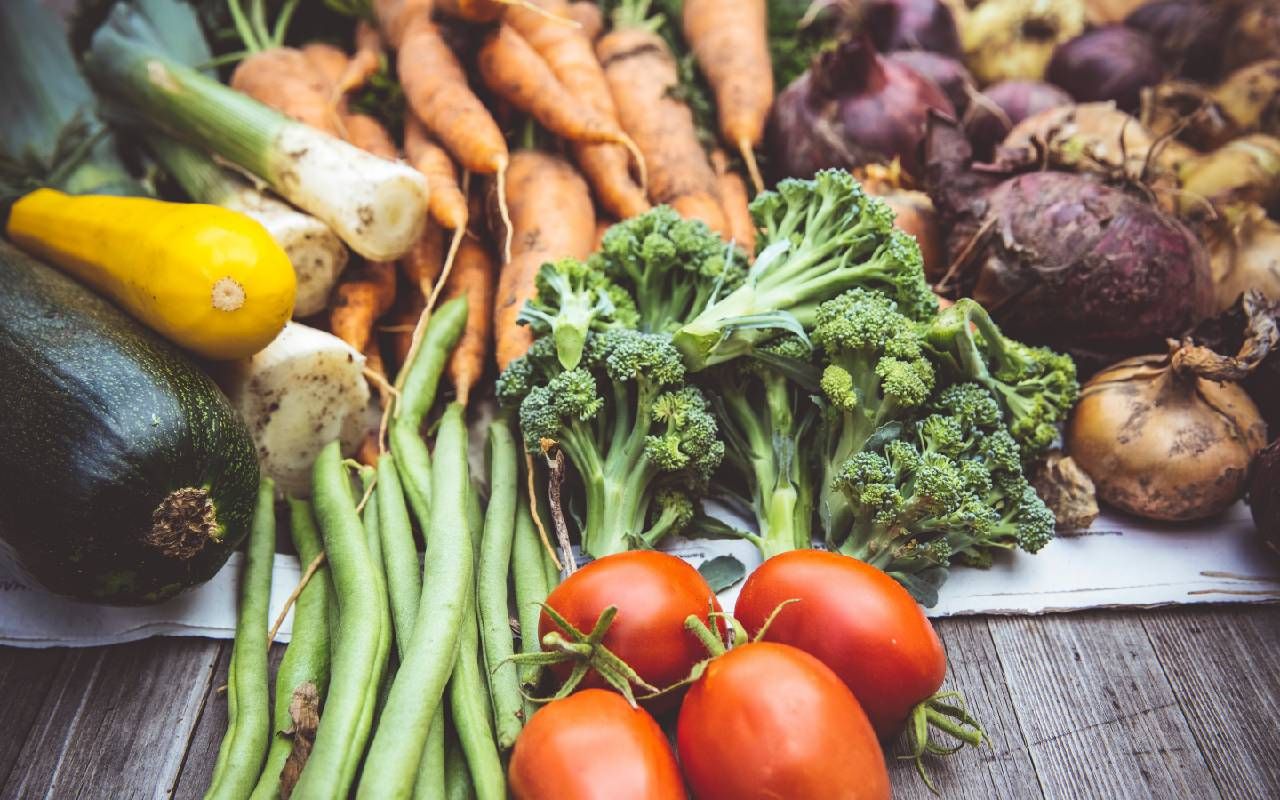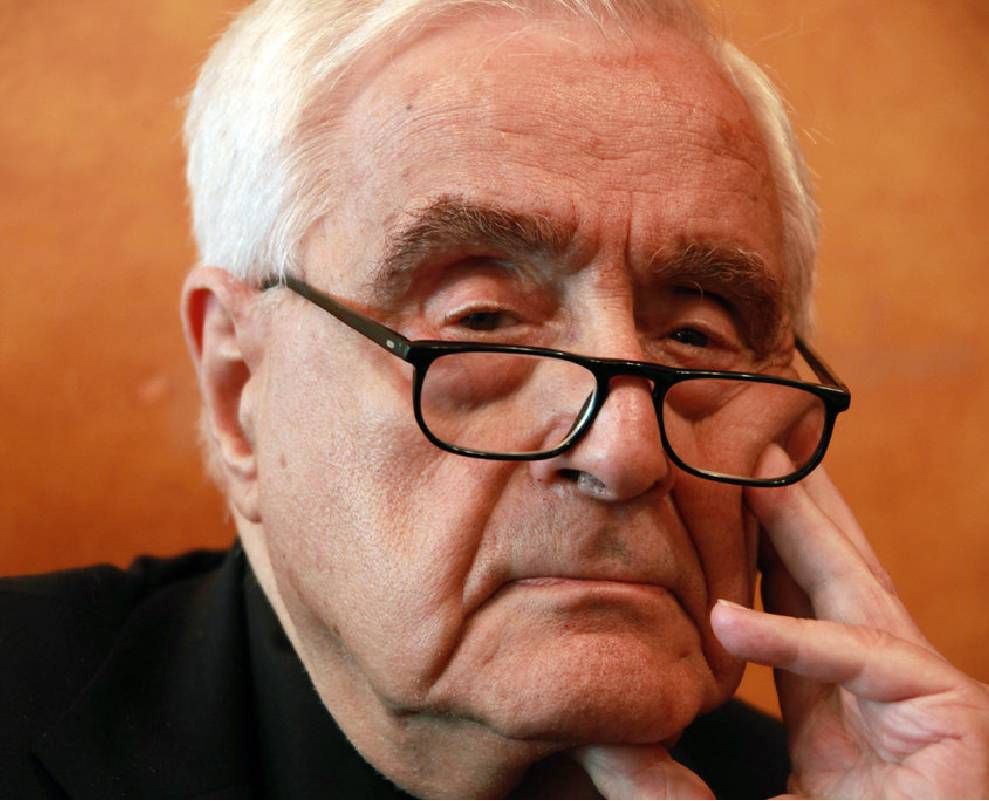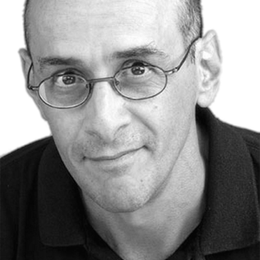I Eat Smarter Now That I'm Older
Here are some reasons why you should eat smarter after age 50, and how to go about it
If we are what we eat, then as a boy, I was probably a Twinkie, and as a young man, most likely a pastrami sandwich, and into my 30s, no doubt an all-you-can-eat buffet at a wedding of any nationality.

Growing up, I ate what most kids ate in the 1950s and 1960s – processed food, more chemistry than cookery. Hey, it was the style at the time. I ate to fill my belly and enjoy the taste; no other purpose was needed. In other words, I followed the strictest of diets. I ate whatever I felt like eating, meaning anything and everything.
How we eat changes as we get older, especially after age 50, occasionally for worse but often for better. Our food preferences, capacity to consume, timing of meals, and attitude toward eating all shift to meet our ever-evolving nutritional requirements.
I followed the strictest of diets. I ate whatever I felt like eating, meaning anything and everything.
"We exercise less, our metabolism slows and our taste acuity declines," says Susan B. Roberts, senior associate dean of foundational research at the Geisel School of Medicine at Dartmouth College. "It's the kind of challenge individuals have to figure out for themselves, and it's okay to be creative about it. Even incremental improvements can make a big difference."
The Right Diet Can Slow Aging
A 2021 meta-analysis titled "Healthy Aging — Nutrition Matters: Start Early and Screen Often," of which Roberts was the lead author, concluded, "A cohesive body of research finds that a healthy diet and weight management are able to not only reliably delay the onset of most typical diseases and functional losses in aging, but also arrest progression and severity, and even support remission for some conditions."
"I eat about half as much as I ate 20 years ago. But now I enjoy food more than ever."
The study recommended routine screenings for "age-related conditions" that can be treated with "a nutrition prescription." Healthy diets and weight, it noted, can prevent such diseases of aging as dementia, osteoporosis, urinary incontinence, sleep apnea and constipation.
"I ate more fast food – burgers, fries – when I was younger," says Peter Tung, 60, a retired architect in Seattle, Washington. "But I cut all that out." He has been eating meals hours earlier since he stopped working because he no longer feels rushed: breakfast by about 5 a.m., lunch by 10:30 a.m. and dinner by 6 p.m.
"I eat about half as much as I ate 20 years ago. But now I enjoy food more than ever," he says.
Finding a Diet That Fits You
Over the years, diet trends have come and gone. Atkins. Pritikin. Scarsdale. Beverly Hills. Oprah Winfrey in any given decade. In my case, I hopped on a few bandwagons – one year, I cut back on eggs; the next, I loaded up on pasta – but let most roll past without me onboard.
Eat this, but avoid that. No, no, on second thought, eat that, but avoid this. I struggled to keep up.
Meantime, scientific research into how food affects us expanded exponentially. Conflicting evidence ensued, all too often creating more confusion than clarity. Eat this, but avoid that. No, no, on second thought, eat that, but avoid this. I struggled to keep up.
Even through my 40s, my eating habits proved less than exemplary. I ate giant bagels and drank soda with impunity. My wife and I could still demolish most of an eight-slice New York pizza at a sitting without a hitch. I also put away a fifth of vodka in less than a week. After all, I was invincible and maybe even immortal.
In the 1980s, as I became a father twice, I realized that maybe I should try to eat healthier. I was older now, and if I were to remain in decent working order and postpone my demise indefinitely, I would have to eat a lot smarter.
Graduating to the Straight and Narrow
So, I reformed. My wife, who stays well-informed about dietary practices, has helped guide me. From her, I've learned, just for starters, about the value of kale, tofu, green tea, beta-carotene, antioxidants and Omega-3.
So, life has gone for many of us. We've adapted our eating habits anywhere from marginally to radically. According to the Healthy Eating Index, American adults over 60 have the highest quality diet across all ages, based on the Dietary Guidelines for Americans from the U.S. Department of Agriculture. Because they eat more fruits, vegetables and whole grains but less sugar, saturated fat and sodium, older adults scored 63 out of 100.
"I now try to observe intermittent fasting," says Leslie Wall, 70, a travel/lifestyle writer and photographer in Larchmont, New York. "I eat on most days only between 11 a.m. and 7 or 8 p.m. I also avoid sugar now, drink more water and eat more protein than before, too, based on advice from my nutritionist. With this approach I've managed to maintain more or less the same weight throughout my adult life."
What Some of Us Still Get Wrong
But older people still eat too little protein and should drink more fluids to stay hydrated. Indeed, according to the National Health and Nutrition Survey, diet quality among Americans 65 or more elders dropped between 2001 and 2018. In an alarming trend, the percentage of older adults with poor diet quality rose from 51% to 61%.
"As you get older, particularly after the age of 65 or so, eating healthy can become more challenging," the Cleveland Clinic warned this year, with weight gain a potential result.
"If you're still in your 50s, you still have time to change your habits and lower your risks of chronic disease."
"It's especially important for older people to eat a healthy diet," says Susan B. Roberts of Dartmouth College. "But as you get older, something has to give. It's best to take on a different mindset. Fortunately, if you're still in your 50s, you still have time to change your habits and lower your risks of chronic disease."
My No-Longer-Secret Recipe
After age 50, I started eating fresh vegetables, fruit and fish more selectively. I stick with whole wheat bread, skip most sweets and treat myself to red meat maybe once or twice a month. I've also disciplined myself to stop eating before I risk spontaneous combustion. I eat more slowly, too, giving dinner an intermission of 15 to 30 minutes to let my stomach signal satiety.
I've come to recognize that eating is as much in the brain as in the belly.
I now eat progressively less throughout the day, calibrating my consumption to match my energy needs at a given hour. I've come to recognize that eating is as much in the brain as in the belly. So, I follow specific basic protocols. Judge how much to eat by your stomach rather than your eyes.
Never skip a meal, but accept moderate hunger for an hour or two once in a while. Eat sparingly but without being unduly spartan. See no food as lousy food per se. Forgo most fats, such as monosaturated fats (but make an exception for Fats Domino).
But lest you suspect I'm a killjoy, hey, no worries. I indulge my gustatory whims now and then. I'm a pushover for cured meats such as prosciutto and soppressata. I drink a glass or two of red wine with most dinners. I may occasionally sample some dark chocolate for dessert.

A Sobering Reminder for Us All
"My eating habits have changed dramatically," confides Morty Matz, a public relations pioneer in New York City often credited with creating the Nathan's Hot Dog Eating Contest in Coney Island. "I lost the ability to swallow at the age of 99. Now I'm fed a liquid nutrition drink through a tube. It's a horror."
As it happens, I know Morty. He's a former boss who remains my friend more than 30 years later. I've gone to restaurants with him and seen how much he once savored the best in food. This hardship Morty now confronts in performing these most basic functions in daily life serves as a sober reminder. If we're still free to eat through our mouths, we should make a particular point of enjoying our food while we can.
Meanwhile, Morty refuses to say goodbye to food as we know it. He trains with a speech therapist twice a week to regain his swallowing ability. He's even kept his charge account around the corner at a smoked fish specialty store. He still yearns again for the tip of his tongue to taste the mildly salty tang and velvety texture of his favorite meal, Nova Scotia salmon with cream cheese on a toasted bagel.


